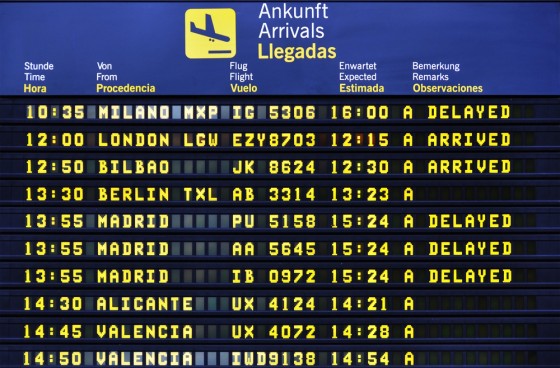An improving economy and updated business practices have contributed to companies sending more employees than ever on international business trips and expatriate assignments. Rising travel risks, however, require employers to take proactive measures to ensure the health and safety of their traveling employees. Many organizations, however, fail to implement a company-wide travel risk management plan until it is too late – causing serious consequences that could easily have been avoided.
The most effective crisis planning requires company-wide education before employees take off for their destinations. Designing a well-executed response plan and holding mandatory training for both administrators and traveling employees will ensure that everyone understands both company protocol and their specific roles during an emergency situation.
Additionally, businesses must be aware that Duty of Care legislation has become an integral consideration for travel risk management plans, holding companies liable for the health and safety of their employees, extending to mobile and field employees as well.
To fulfill their Duty of Care obligations, organizations should incorporate the following policies within their travel risk management plan:
• A customized policy specific to the organization and the specific needs of traveling employees.
• Clearly communicated protocols that are enforced to help educate and protect the safety and health of traveling employees.
• Response plans and procedures for handling medical/health emergencies.
Proactive Resources for Your Traveling Employees
A travel risk management strategy can only be successful if your workforce is given the necessary resources well before travel occurs. An important part of any travel risk management strategy involves answering common questions employees may have regarding their upcoming travels. It’s also a good idea to provide them with follow-up information so they can be up-to-date.
Not only will a company-wide pro-active travel risk management plan empower employees with the information they need, but implementing such a plan can also help keep your company’s reputation and financial standing in check and prevent any liabilities against your business. The following resources can be useful as part of your overall travel risk management strategy:
- Travel logistics such as hotel/meeting site location and reservations details, nearby pharmacies and medical clinics, and passport and/or visa arrangements. It is also crucial to share contact information in the event employees need help during an emergency – such as that of your travel assistance partner or internal emergency resources – and encourage them to add this information to their mobile phone contacts.
- A medical overview is essential, especially if the host country requires visitors have documentation of specific vaccinations. Employees should understand and be up-to-date on all routine vaccinations (such as influenza, measles, and mumps). The CDC’s Travelers’ Health website has valuable information, such as worldwide health alerts, although a travel assistance partner can provide this information directly to your employees prior to travel. Additional insight your company can provide to traveling employees is information about health risks in their destination countries.
online pharmacy celexa with best prices today in the USA
This ensures employees are well aware of the quality of local food and drinking water as well as where to find quality medical care.
Also, since most health insurance plans do not cover members when they are traveling outside the U.S., businesses should purchase additional coverage. Even if their plans provide coverage outside the U.S., many health insurance policies aren’t able to mitigate all of the risks associated with business travel. It would only take one international medical evacuation (which can cost more than $100,000 from business hubs in Dubai, UAE to New York, or China to Texas) to make a serious impact, not just on your traveling employee but on your company as a whole.
- A detailed synopsis of the destination’s political standing is crucial to keep your employees safe while traveling, as many regions of the world are experiencing political unrest and living under the very real threat of terrorism. It is important to ensure that your employee benefits package includes security coverage for employees traveling to high-risk areas.
Advance knowledge of the political status of a country will prepare employees should they face an unexpected issue abroad, as would these resources:
- American embassies and consulates at the destination country, as well as the State Department’s emergency contact numbers.
- Travel alerts, which provide information on risks to the security of U.S. citizens. Though usually short-term, these alerts must be taken seriously.
- The State Department’s Smart Traveler Enrollment Program (STEP) is an extremely reliable resource that provides up-to-date location-specific security updates to any employee enrolled for the destination as well as information on the nearest U.S. Embassy. The enrollment will help U.S. Embassy or nearest U.S. Consulate to be in contact with your traveler in the event of an emergency.
Keep in mind that it is not just traveling employees – but also the employers – who need to be prepared for a travel-related emergency.
Planning ahead and implementing company-wide crisis management education allows your workforce to be fully aware of the guidelines and protocols. Successfully mitigating a crisis without any communication missteps can prevent a crisis from spiraling into disaster.

